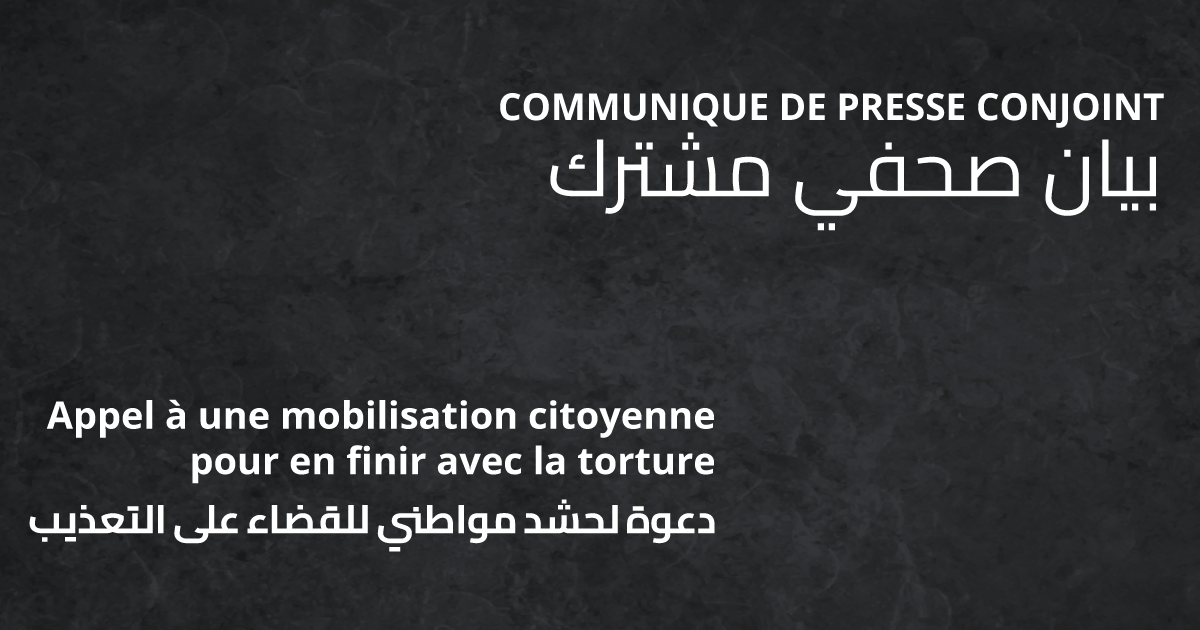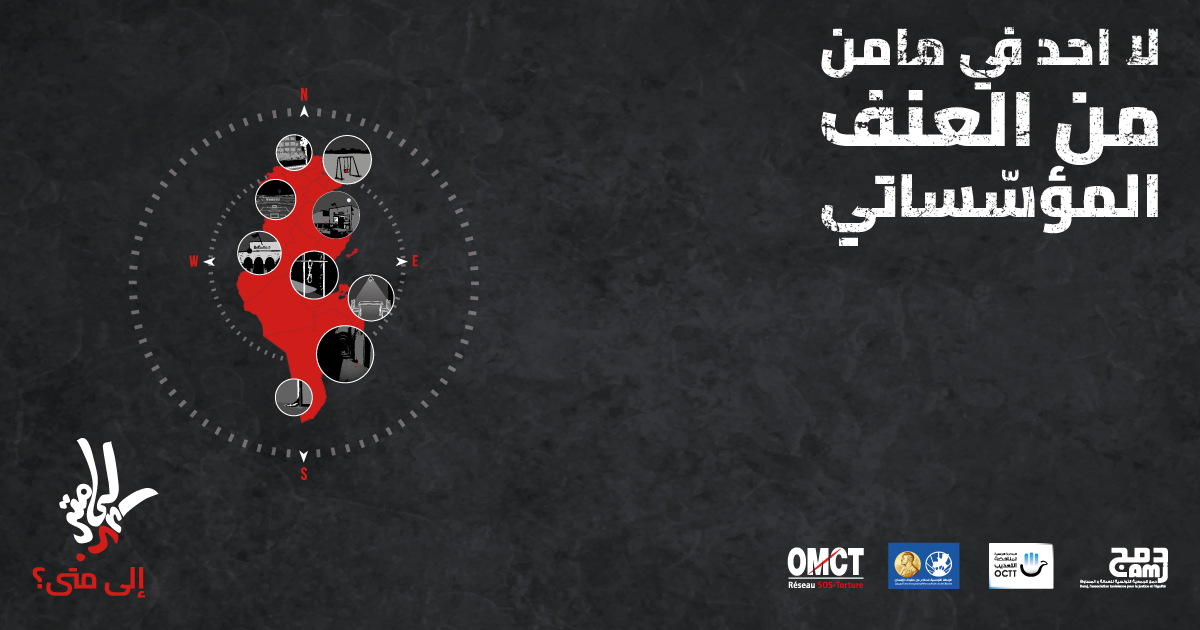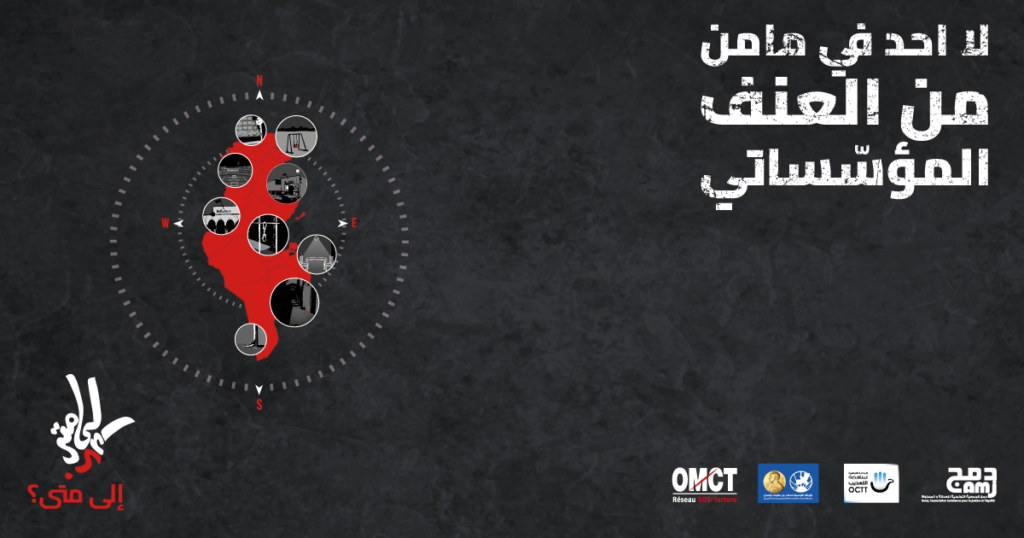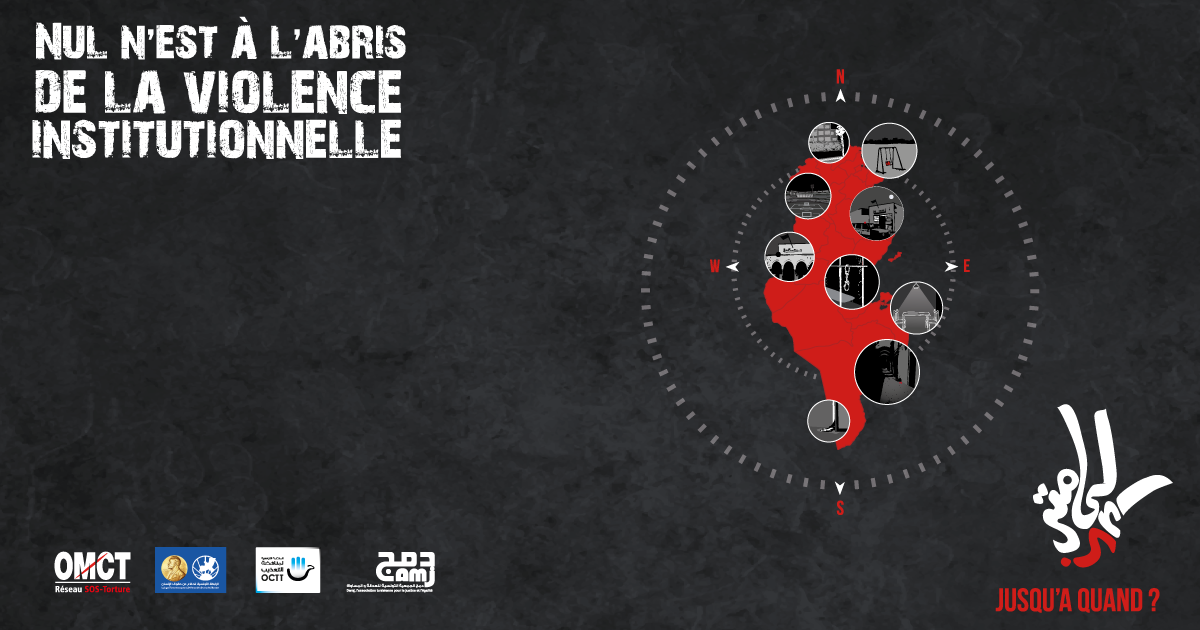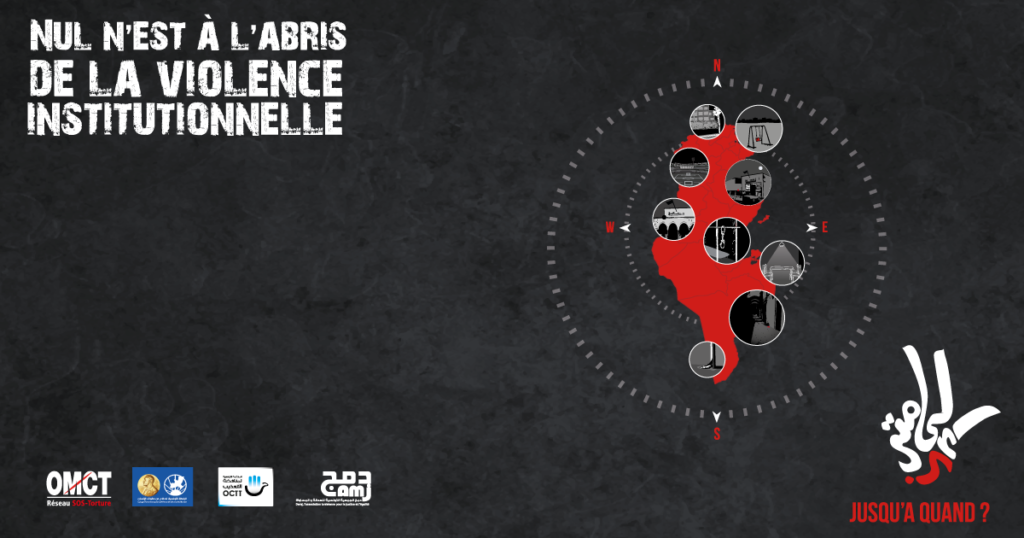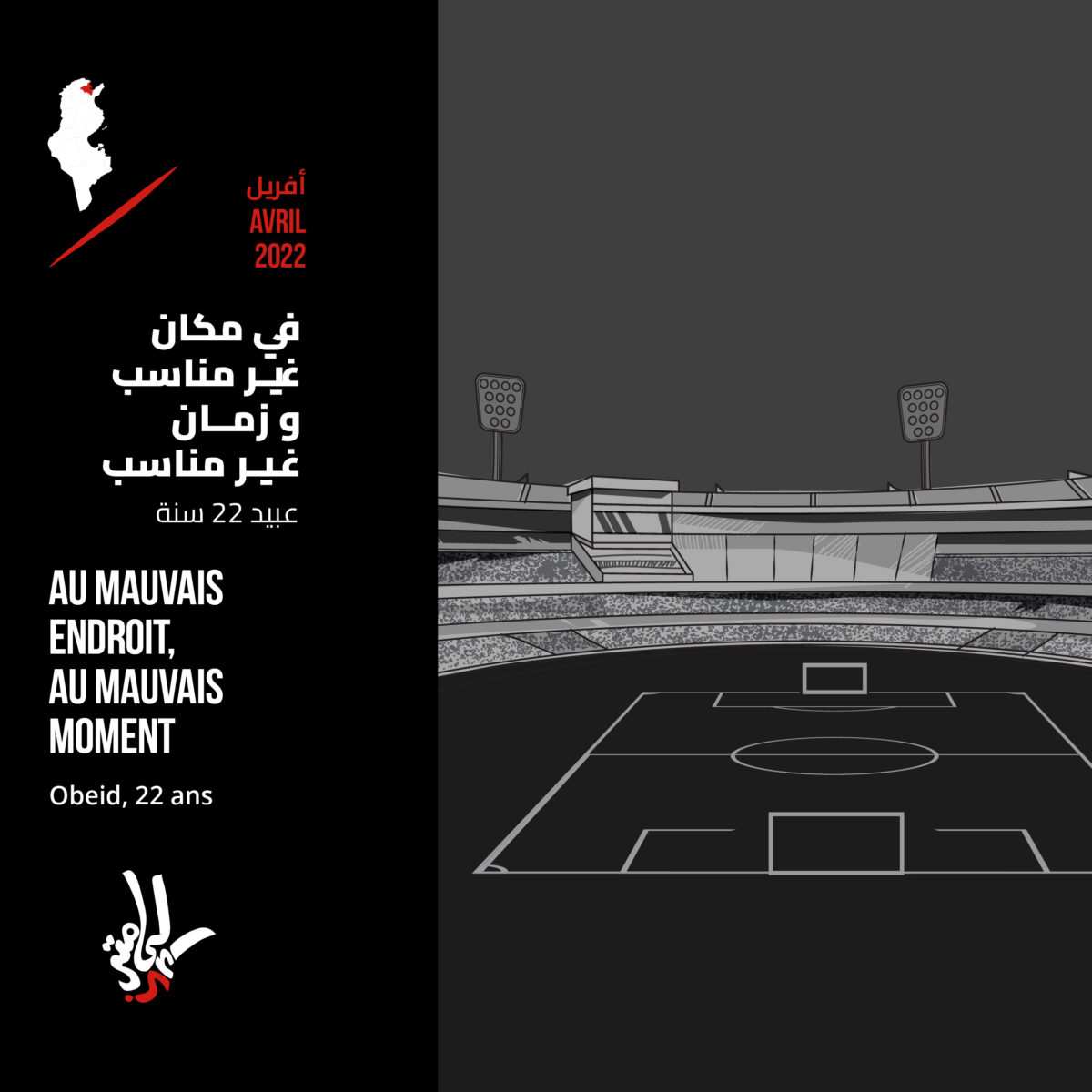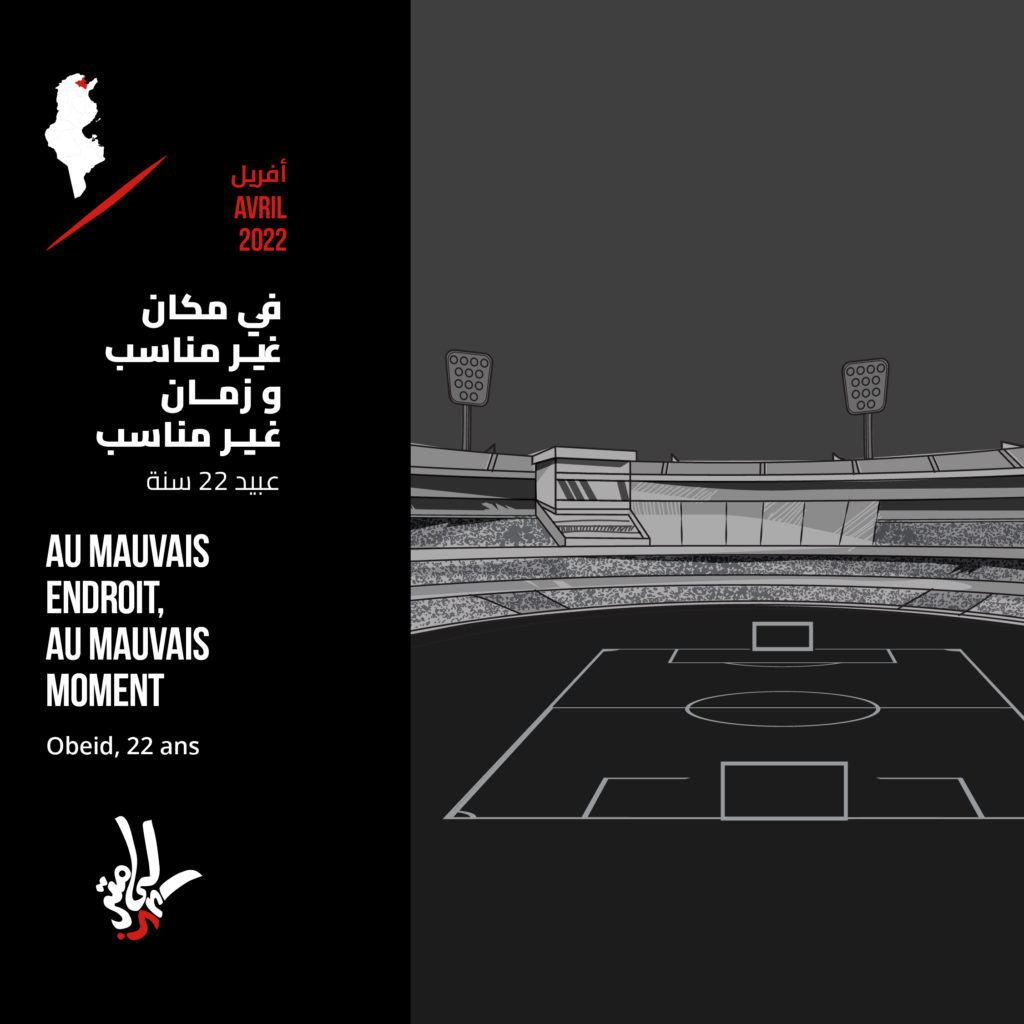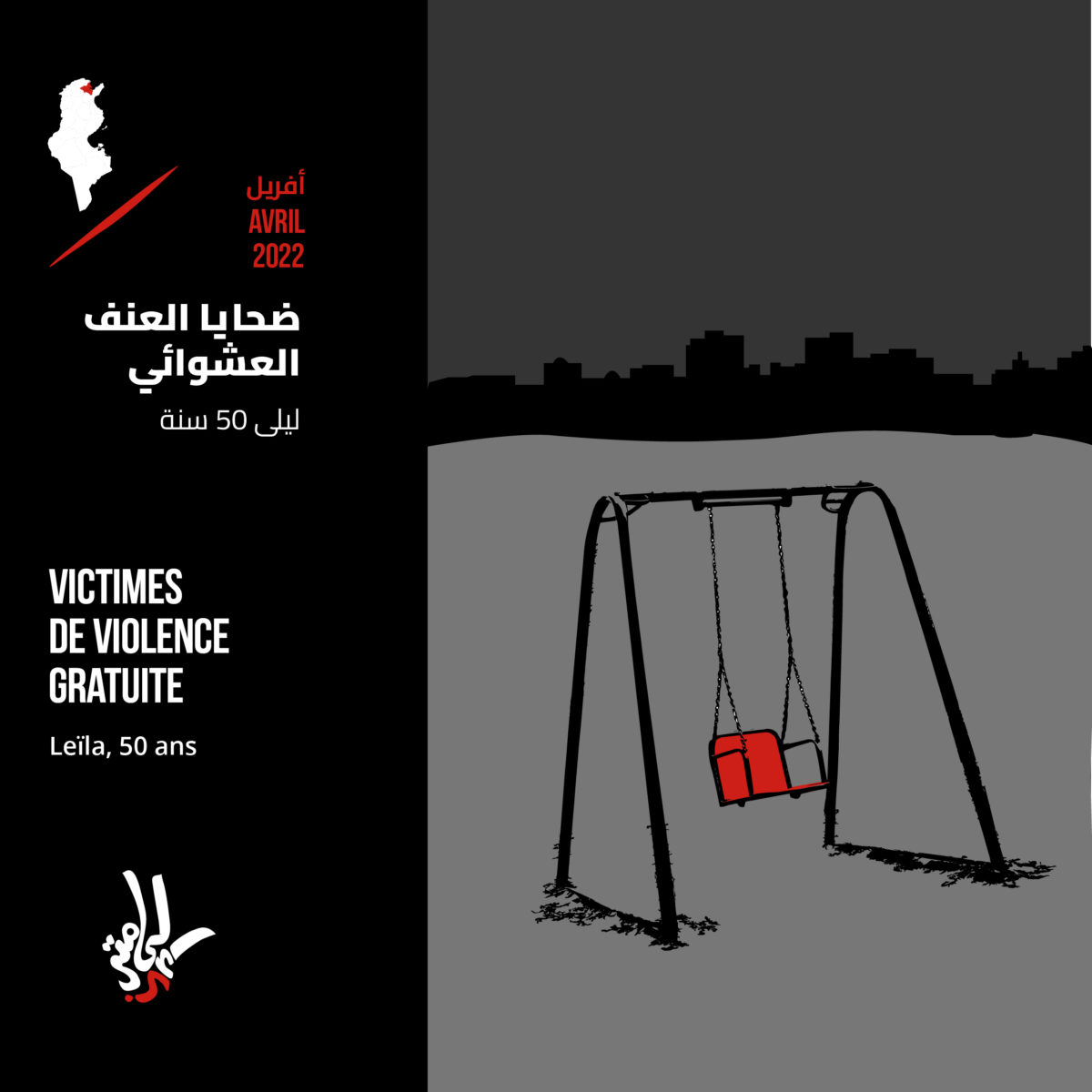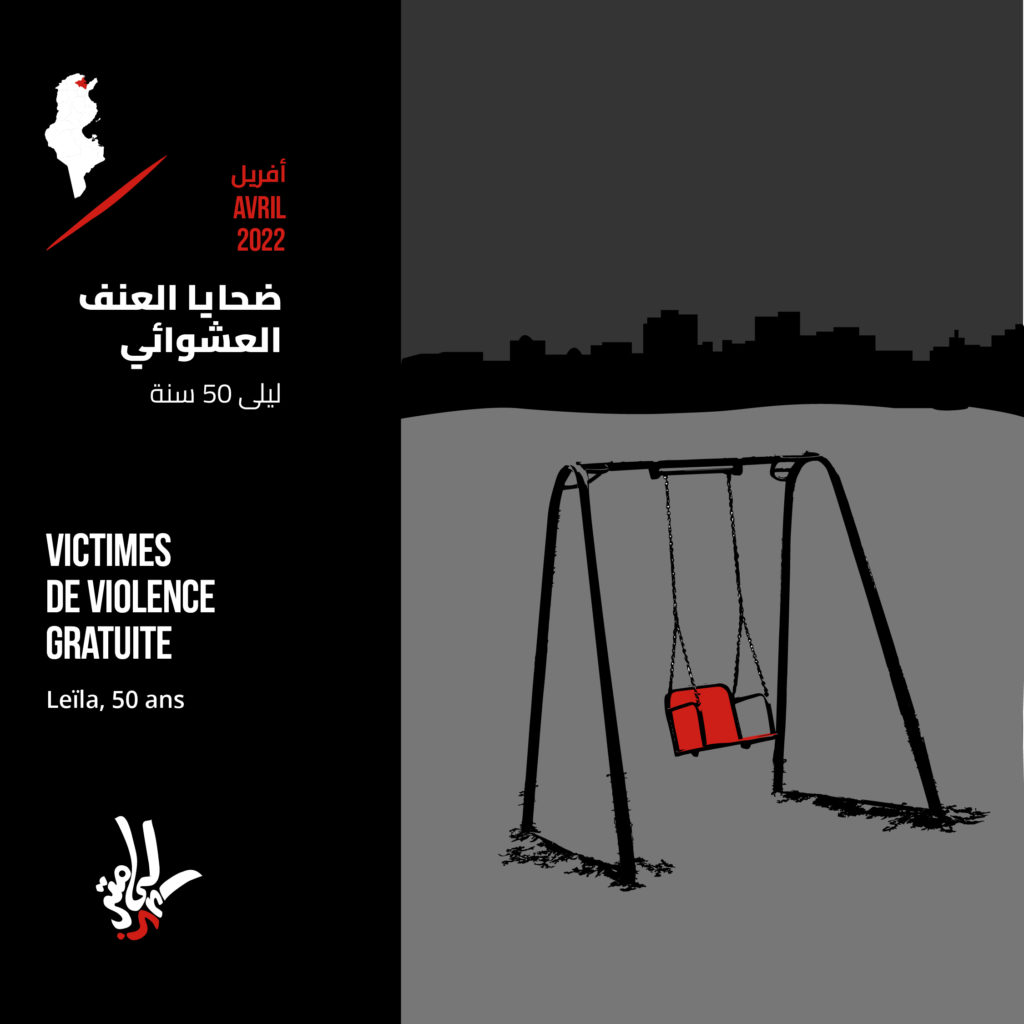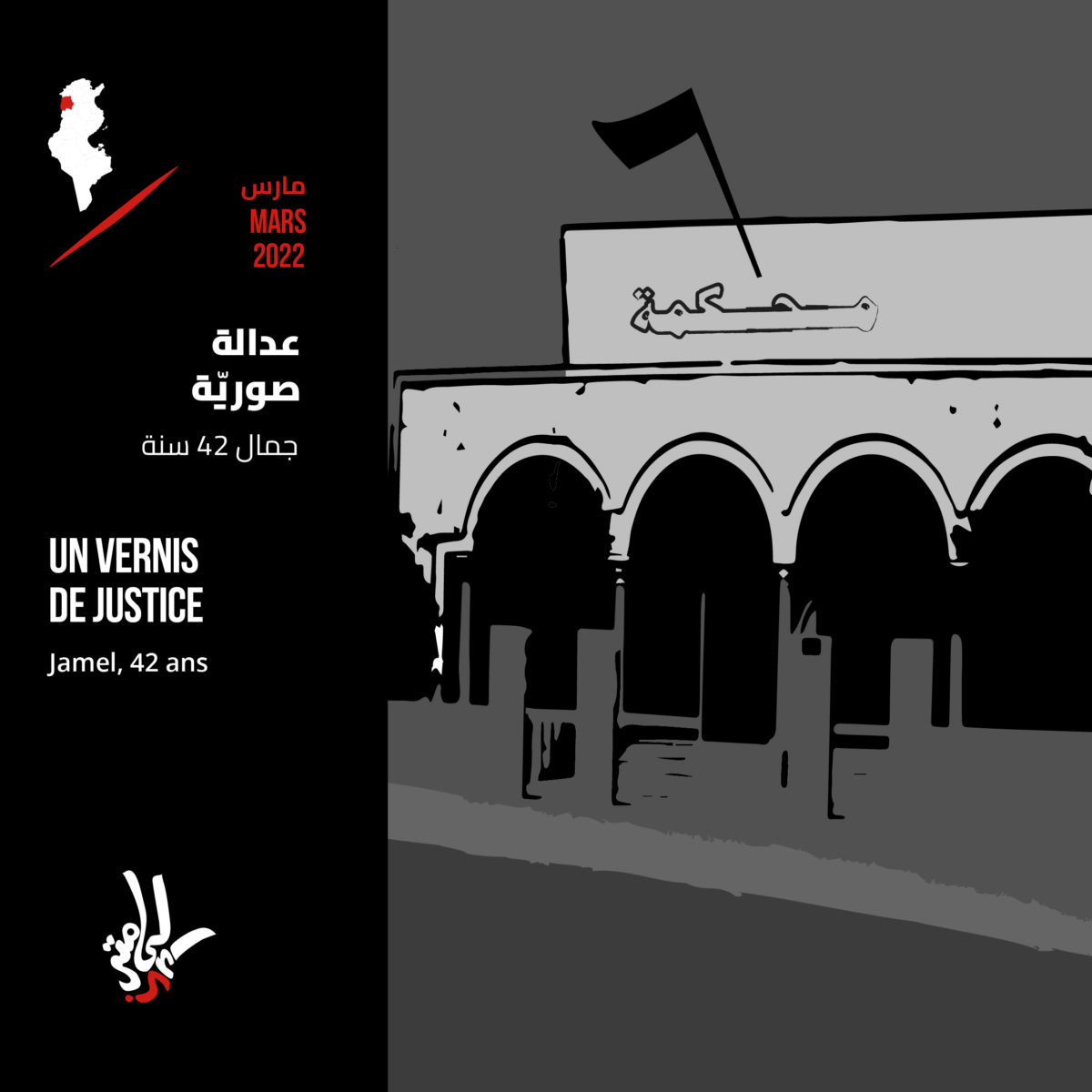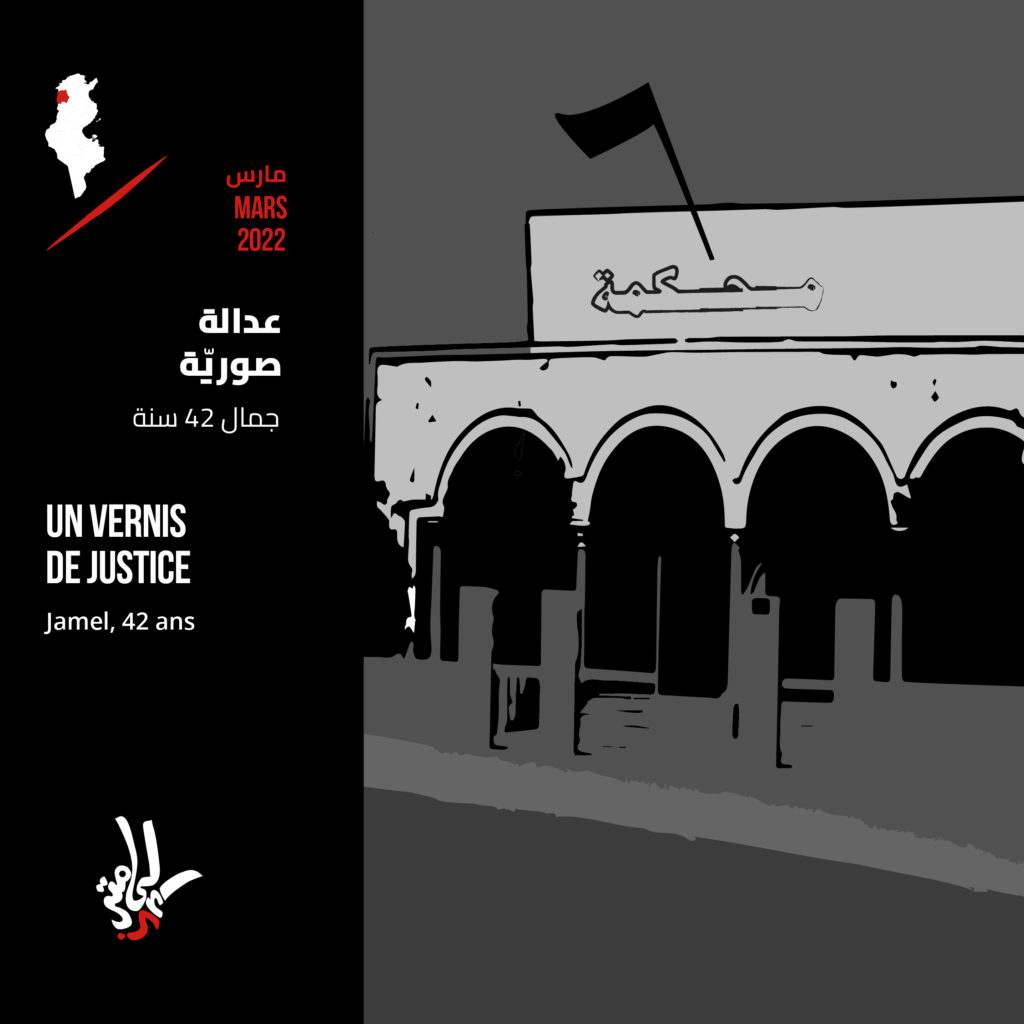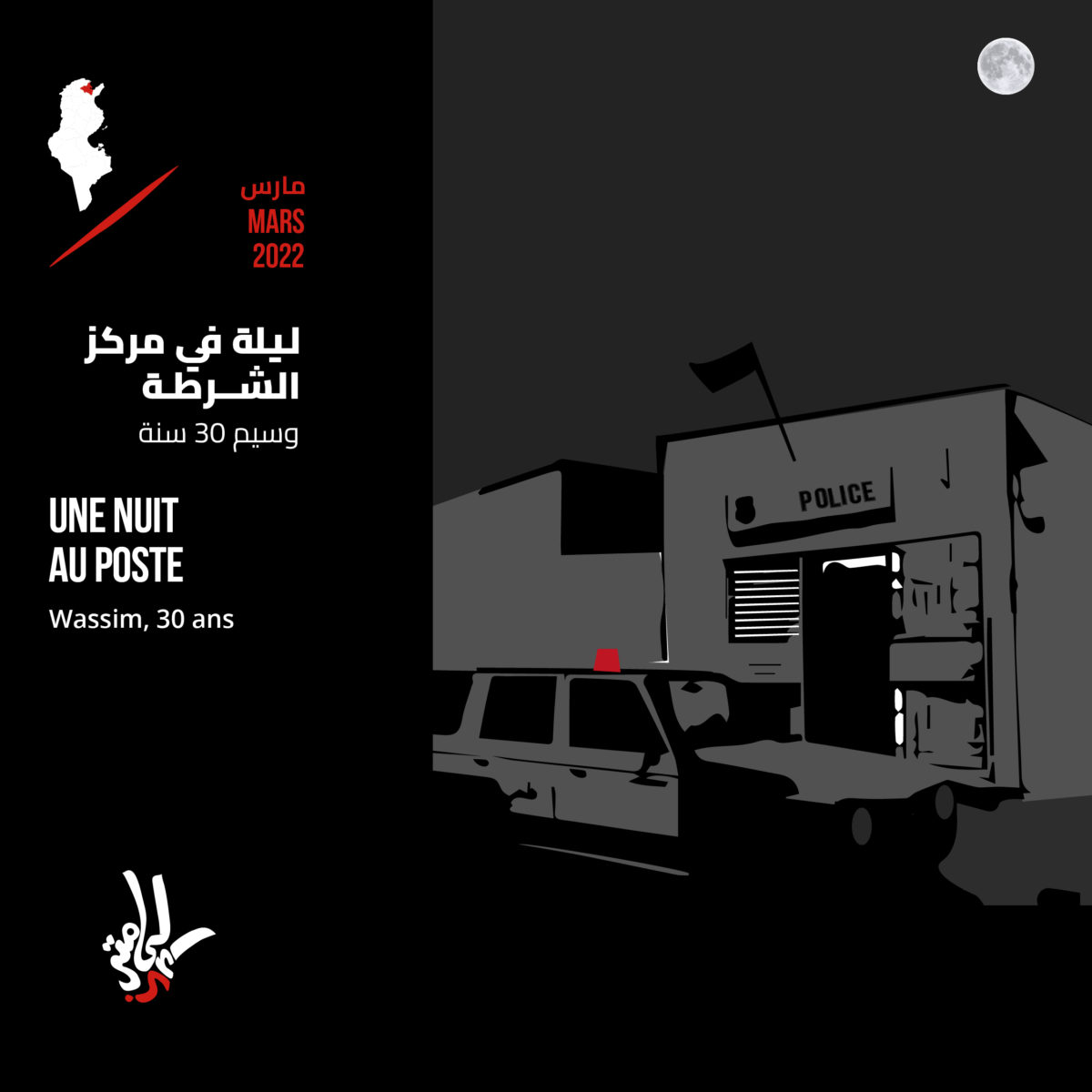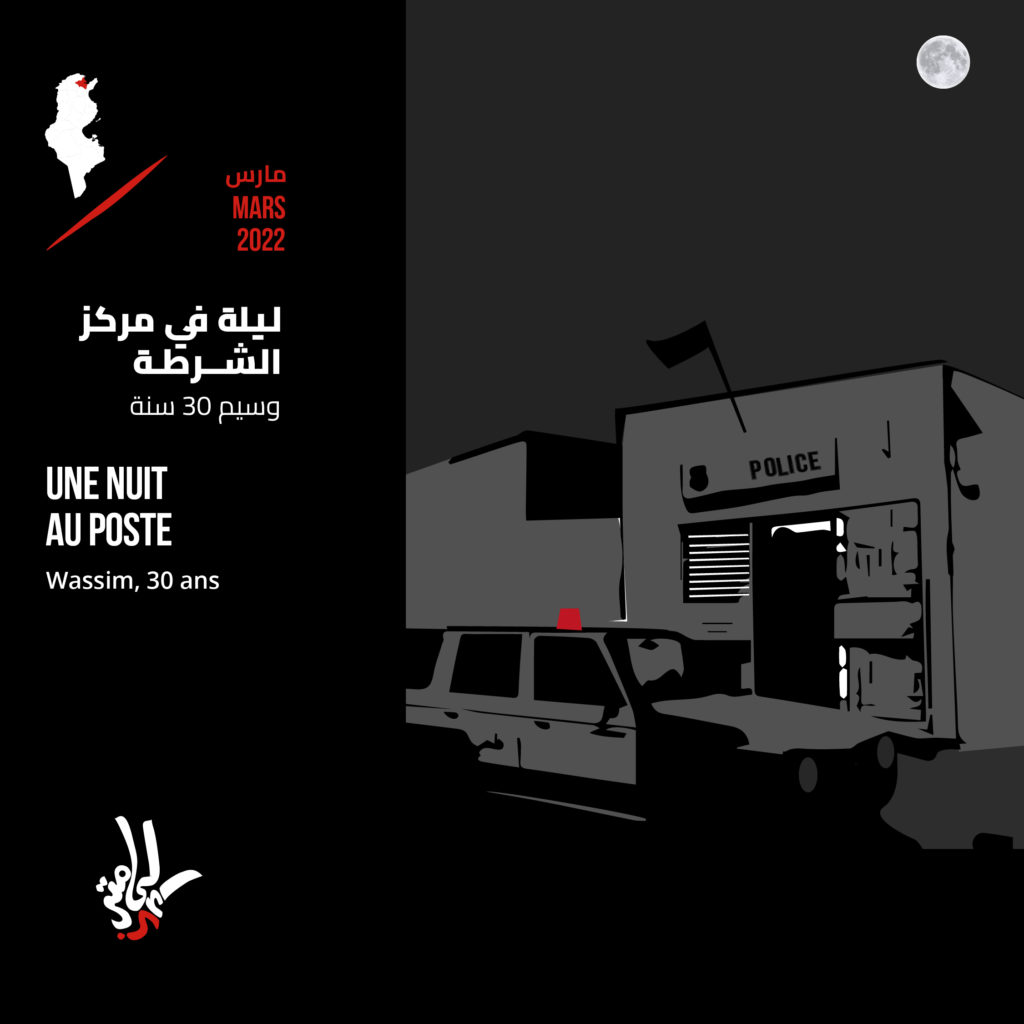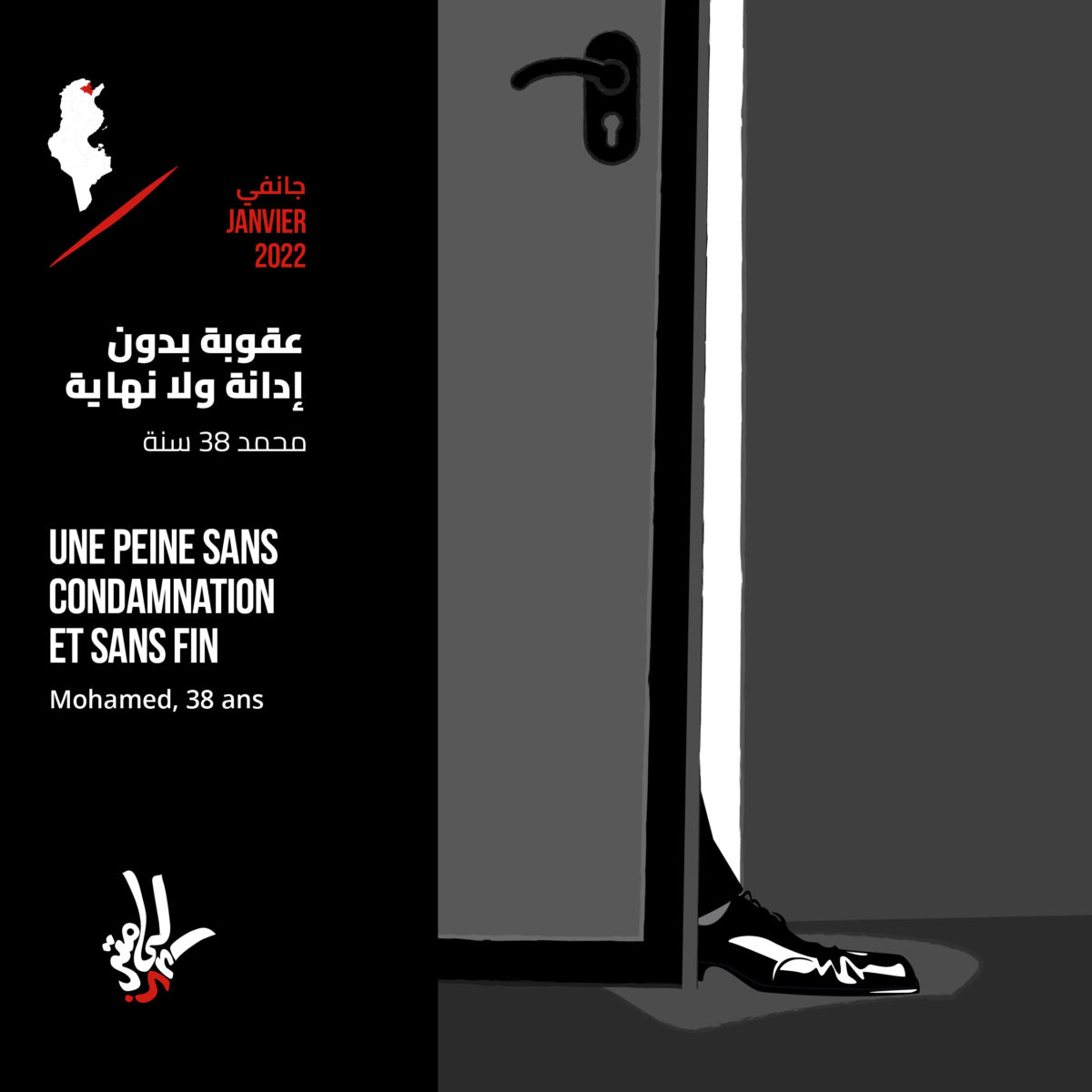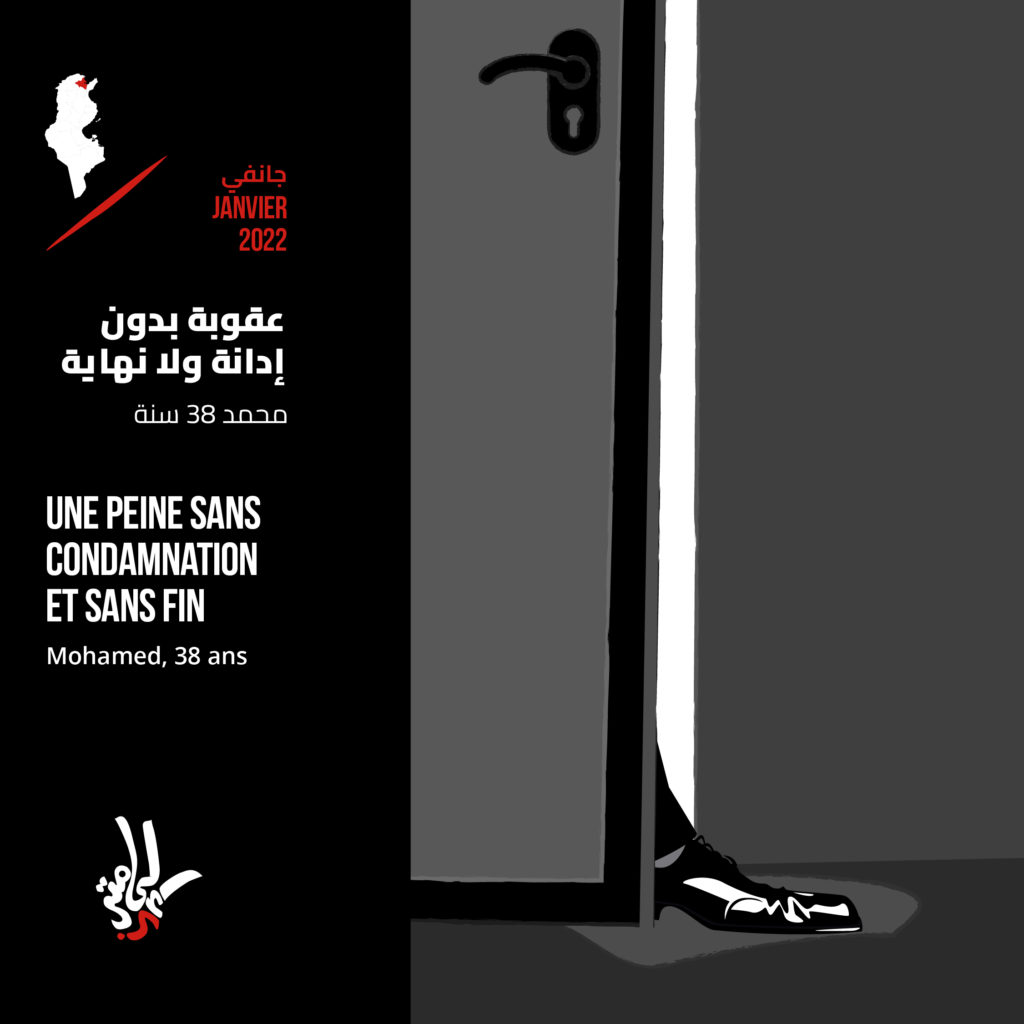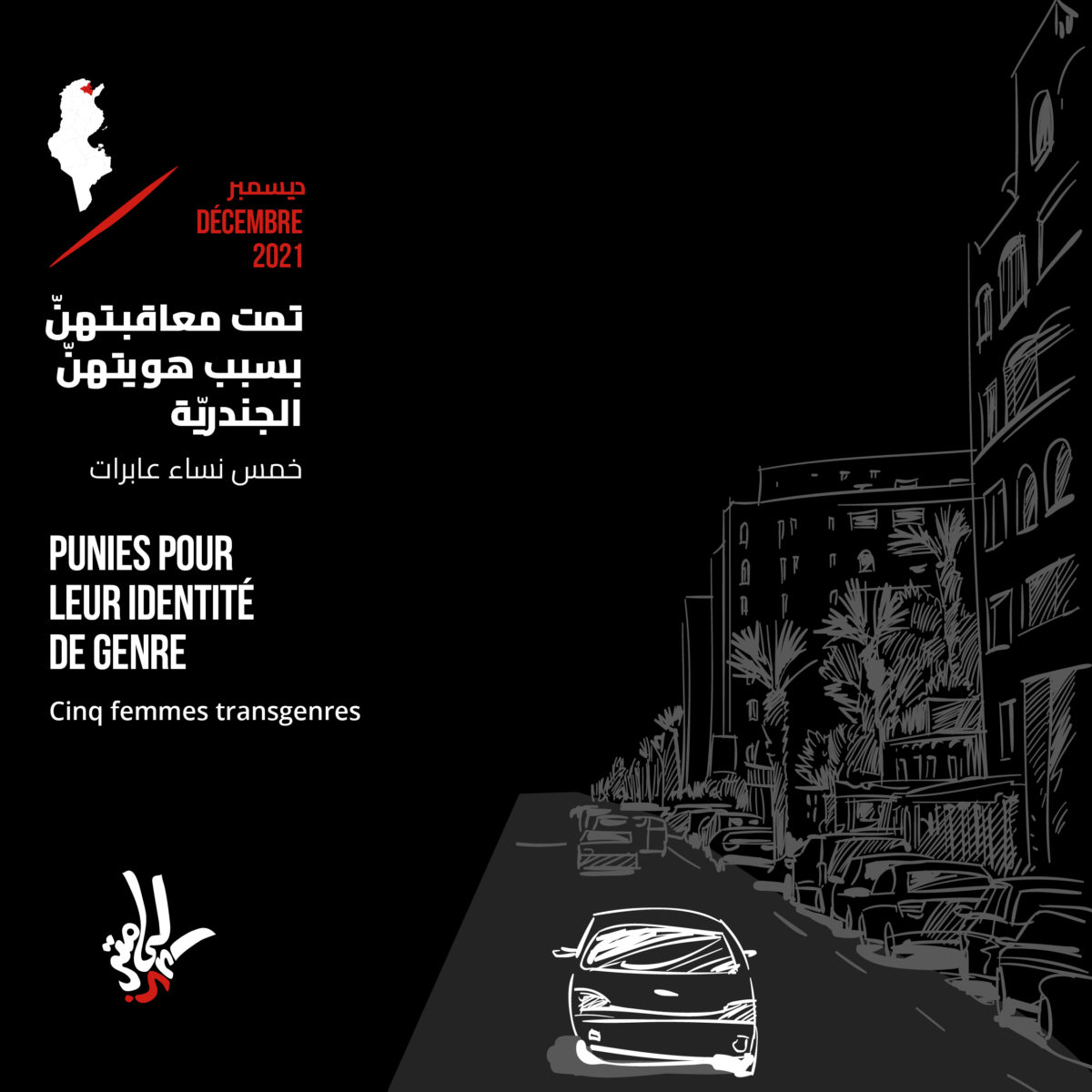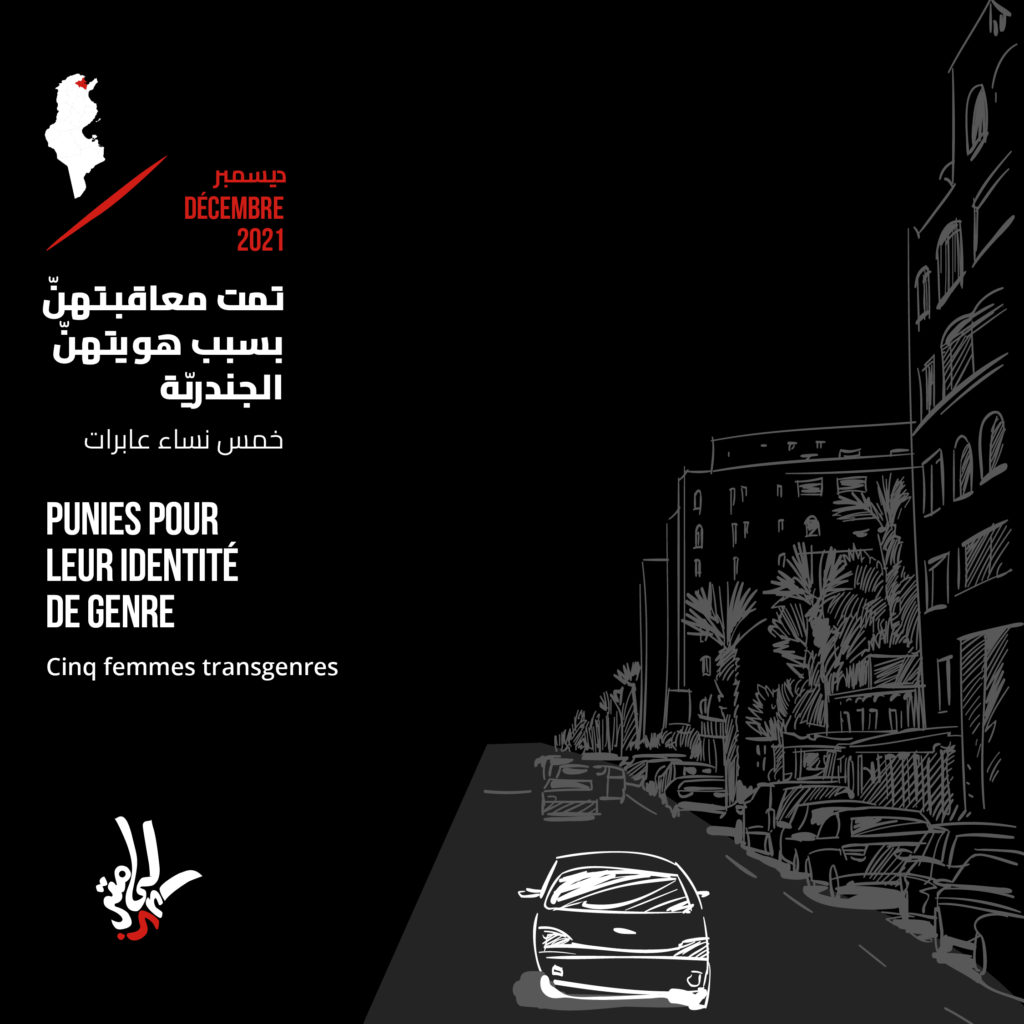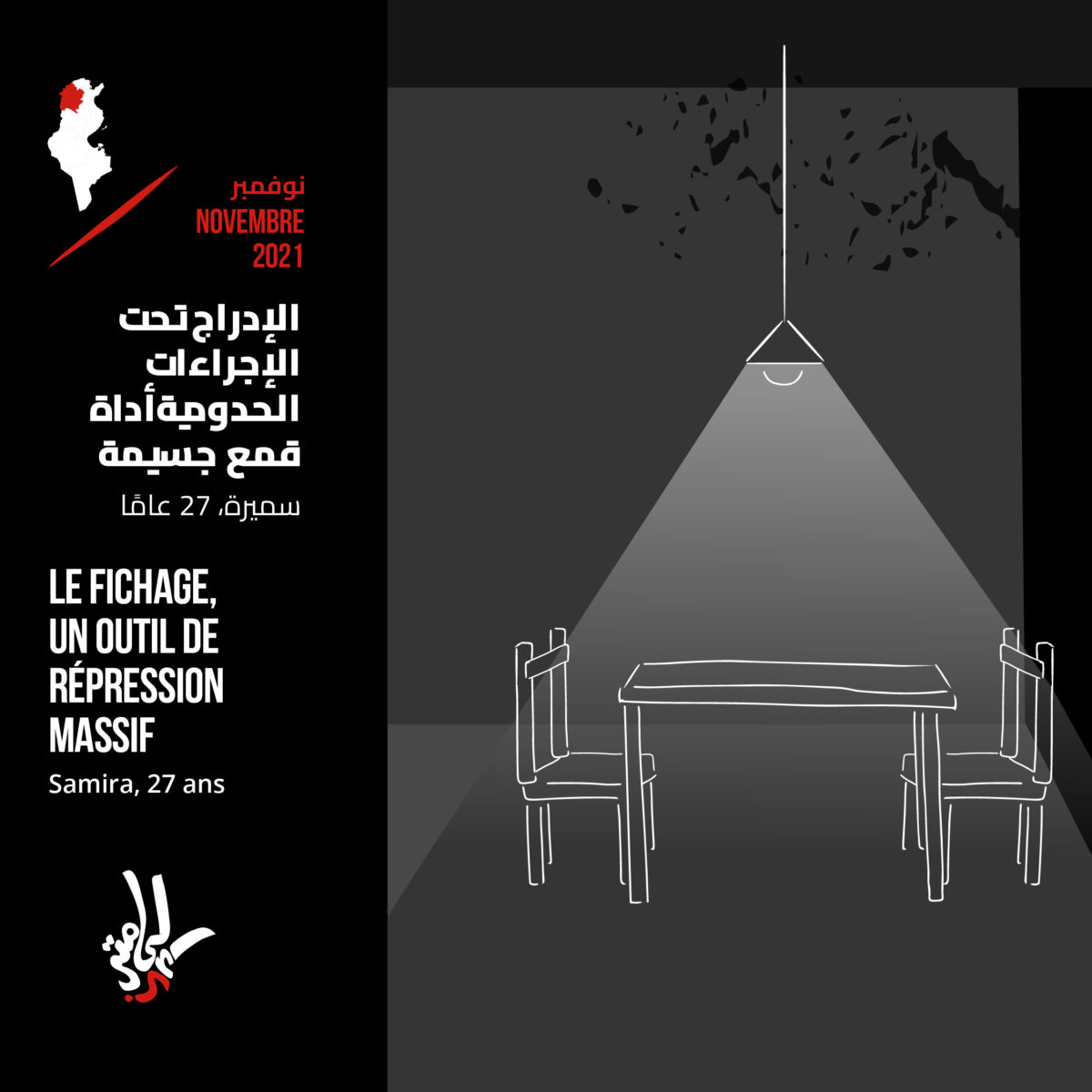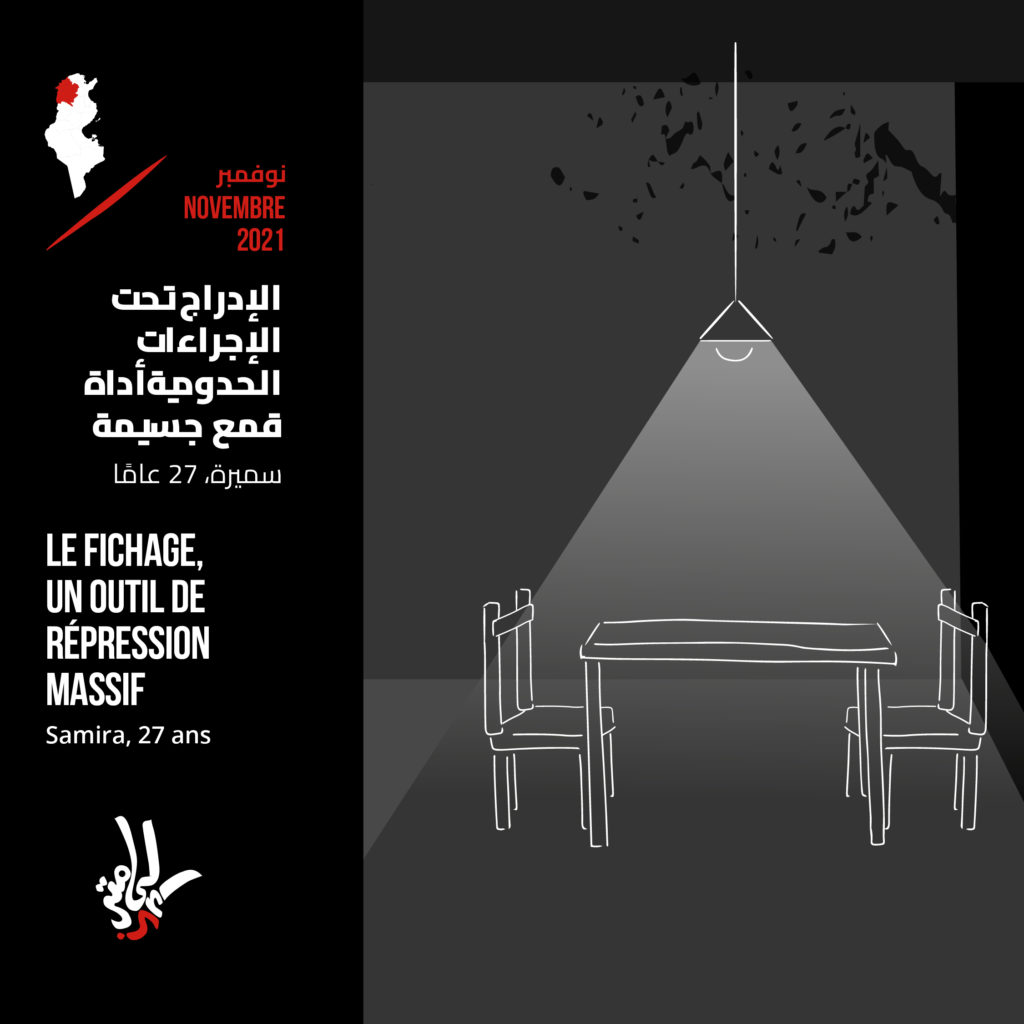Tunis, 26 juin 2022 (version arabe ci bas)
La Tunisie commémore le 26 juin, la journée internationale pour le soutien aux victimes de la torture dans un contexte politique des plus inquiétants. Alors que la démocratie tunisienne est au bord du précipice avec des pouvoirs législatif et judiciaire mis entre parenthèse, l’appareil sécuritaire tourne à plein régime. Près d’un an après l’activation de l’état d’exception, le bilan est sans appel : la violence institutionnelle est toujours là, à la faveur d’une impunité qui demeure prédominante.
La superposition des régimes d’exception avec la reconduction de l’état d’urgence, les coups portés à l’indépendance de la justice, le musèlement des opposants politiques, activistes et défenseurs des droits de l’homme forment un terreau favorable à l’expression de la violence étatique.
Si la violence ordinaire perpétrée par des agents sécuritaires à l’encontre de citoyens « lambda » n’avait jamais cessé, nos organisations dénoncent avec inquiétude la recrudescence d’une forme de violence institutionnalisée qui semble orchestrée ou consentie par le sommet de l’Etat. Cette violence s’abat lors de rassemblements publics (manifestations, mouvements sociaux et matchs sportifs), sur les membres la communauté LGBTQI++, les migrants, les opposants politiques et les personnes considérées comme des menaces à l’ordre public. Elle se matérialise par des agressions physiques, mais aussi à travers un harcèlement policier et judiciaire aux conséquences psychologiques dévastatrices.
Ce faisant, l’Etat envoie à ses citoyens un message clair : la violence institutionnelle peut aujourd’hui toucher n’importe qui, n’importe où, dans n’importe quelle circonstance.
Les magistrats qui prennent à cœur de jouer leur rôle de rempart contre les abus du pouvoir exécutif sont aujourd’hui mis sur la touche ou menacés de l’être. Les associations, journalistes et autres contre-pouvoirs voient leur indépendance et marge de manœuvre menacées.
Il en va de même du processus de justice transitionnelle, savamment entravé par un contexte politique plus favorable aux accusés qu’aux victimes.
Dans ce contexte menaçant, la mobilisation générale pour défendre les droits des citoyens est devenue plus urgente que jamais. Nos organisations invitent le plus grand nombre à participer et soutenir une série d’événements à travers le pays.
Liste des évènements :
- 22, 23 et 24 juin : Journées culturelles pour la prévention de la torture, organisées par l’Instance Nationale pour la Prévention de la Torture ;
- 25 juin : Cérémonie d’hommage pour la militante, l’avocate et la présidente d’honneur de l’OCTT, Mme Radhia Nasraoui, organisée par l’Organisation Contre la Torture en Tunisie.
- 26 juin : à 9h30 Marche annuelle de la société civile contre la torture du Palais de la justice à Beb Bnet jusqu’au terrain de l’ancienne prison du 9 avril.
- 26 juin : Publication d’une timeline sur la torture et les violences policières pendant l’année écoulée, préparée par les membres du Réseau SOS Torture.
- 26 juin à Sfax : Association Ifriqiya : Projection et débat d’un film réalisé par l’association pour la culture et l’éducation à la citoyenneté (ACEC) en partenariat avec l’Organisation Mondiale Contre la Torture ;
- 26 juin à Sousse : Association Awledna : Exposition des outils de communication et de sensibilisation avec des discussions sur la prévention de la torture sur le plan local ;
Liste des signataires :
- Organisation Mondiale Contre la Torture
- Ligue Tunisienne des Droits de l’Homme
- Organisation Contre la Torture en Tunisie
- Damj pour la justice et l’égalité
- Association Al Karama pour les droits et les libertés
- Avocats Sans Frontières
- Jamaity
- Observatoire tunisien pour les lieux de détention
- Réseau tunisien pour la justice transitionnelle
- Coalition tunisienne pour la dignité et la réhabilitation
- Groupe Tawhida Ben Cheikh,
- L’initiative Mawjoudin pour l’égalité
- Association Ness pour la prévention combinée
- Fédération internationale pour les droits humains
- Association Intersection pour les droits et les libertés
- Association tunisienne Awledna
- Association Tunisienne de Défense des Droits de l’Enfant
- Association tunisienne de défense des libertés individuelles
- Danseurs citoyens sud
- Outcast
- Association Amid vision
- Association pour la promotion du droit à la différence
- Amnesty international Tunisie
- Association tunisienne pour les personnes en situation d’handicap
- Association voix de la femme
- Euromed Droits
- Association internationale pour le soutien des prisonniers politiques
- Association insaf pour les anciens militaires
- Association Ifriqiya
- Association pour la culture et l’éducation à la citoyenneté
- Association Arthemis
- Association Al Bacikat, Guebilli
- Association théâtre forum, Tunis
- Ligue Tunisienne pour la citoyenneté
- Association voix des jeunes du Krib
- Comité pour le respect des libertés et des droits de l’Homme en Tunisie
- Psychologue de monde Tunisie
- Ligue Tunisienne de droits de l’Homme
